- Home
- Harlan Coben
Run Away Page 25
Run Away Read online
Page 25
Lou didn’t use it very often.
“You alone?” he asked when she picked up.
“You didn’t call for phone sex, did you?”
“Uh, yeah no. Open up your laptop, wiseass.”
She could hear the excitement in his voice. “Okay.”
“I emailed you a link. Click on it.”
Elena opened her browser and started to sign into her email.
“You click it yet?”
“Give me a second, will you? I’m typing in my password.”
“Seriously? You don’t have it saved?”
“How do you save it?”
“Ugh, never mind. Tell me when you have the link up.”
Elena found Lou’s email and clicked the link. A website called Ance-Story came up.
“Bingo,” she said.
“What, why?”
“Let me just double-check something.”
Elena grabbed her phone and checked her texts. There was one from Simon Greene, who’d informed her that his daughter Paige had no charges on her credit card for DNAYourStory, but that he had found one for $79 to:
Ance-Story.
She filled Lou in on Simon’s text. “Okay,” Lou said, “so this is going to be even bigger news than I thought.”
Elena’s eyes traveled down the home page. No doubt about it—this was definitely one of those DNA genealogy sites. There were all kinds of photographs of people embracing and cute catchphrases like “Discover Who You Really Are” or “Only You Are You—Uncover Your Unique Ethnic Origins.” There were other links that could help the potential customer—like the thrilled people in the embracing photographs—“find new relatives.”
Below that, the packages the potential customer could purchase were displayed. The first option, priced at $79, offered you a breakdown of your ancestry and the chance to connect with DNA relatives. The second option was called “For Your Health Too.” It offered the same as package one, but for an extra eighty dollars, you’d receive a “full medical report that could make you healthier.”
The word RECOMMENDED was stamped in flashing letters above the more expensive package. What a surprise. The company itself was suggesting you spend more money on their products. Gasp.
“You on the home page?” Lou asked.
“Yes.”
“Click Sign in.”
“Okay.”
“You’ll see two fields. User name and Password.”
“Right.”
“Okay, this is the part where I get legal on you. I called on the secure app because I figured out how to get into Henry Thorpe’s DNA account.”
“How did you do that?”
“You really want to know?”
“No.”
“I know we could get permission from his father—”
“But he has no standing. I already heard this today.”
“So what we would be doing by signing in…well, I’m not sure it’s completely legal. This could be viewed technically as hacking. I want to caution you.”
“Lou?”
“Yeah?”
“Give me the user name and password.”
He did so. She typed them in. A page came up that read: “Welcome back, Henry. Here’s your ethnic composition.”
Henry was 98 percent European. Under that, he was listed as 58 percent from Great Britain, 20 percent from Ireland, 14 percent Ashkenazi Jew, 5 percent Scandinavian, and then everything else was negligible.
“Scan down to the bottom of the page,” Lou said.
She traveled past something called Your Chromosomes.
“You see the link that says ‘Your DNA Relatives’?”
She said that she did.
“Click it.”
A new page came up. On the top, it read “Sorted Strength of Relationship.” Next to that, it noted that “You have 898 relatives.”
“Eight hundred and ninety-eight relatives?” Elena said.
“Henry Thorpe better get a bigger Thanksgiving table, right? That’s normal, maybe even on the low side. The vast majority are distant cousins who share less than one percent of your DNA. But click Page One.”
She could hear the excitement in his voice.
Elena clicked. The page took its time loading now.
“You see it?”
“Calm down, I’m using a Howard Johnson’s Wi-Fi.”
And then she did indeed see it. The whole case started to come together. That was how it felt. Like a whole bunch of those big puzzle pieces suddenly started to fit.
Four people were listed as: Half-Sibling(s) of Henry.
“Holy crap,” she said.
“Yep.”
Damien Gorse of Maplewood, New Jersey, was listed first. His full name. Just like that. The murdered owner of the tattoo parlor was a half brother of Elena’s client.
Under that, also listed as a “half-sibling male,” were just initials.
“AC from the Northeast,” Elena said. It didn’t take much to guess. “Aaron Corval.”
“Probably.”
“Any way to confirm?”
“I’m working on it. See, the site doesn’t let people just list themselves anonymously. It gives you two options. Full name. Or initials. But they have to be real. I’d say half the people do full name, half do initials.”
Next, also listed as a half-sibling male, were the initials NB of Tallahassee, Florida.
“Any way to trace down NB?”
“None that are legal.”
“How about illegal?”
“Not really. I could send him a message as Henry Thorpe, see if he’ll tell me his name.”
“Do it,” she said.
“That violates—”
“Can it be traced back to us?”
“Don’t insult me.”
“Then do it,” Elena said.
“It turns me on when you bend the rules.”
“Super, great. We also need to contact the authorities. Maybe they can get a warrant off what we have, I don’t know.”
“We can’t give them what we have, remember?”
“Right, okay. But NB, if we find his identity, needs to be warned. He could be next.”
“There might be more.”
“What do you mean, ‘more’? More what?”
“Siblings.”
“How do you figure that?” she asked.
“Henry Thorpe put his DNA into at least three of these sites.”
“Why would he do that?”
“Lot of people do. The more databases you’re in, the better your odds of finding blood relatives. My point is, he found four half siblings in Ance-Story alone. He may have found more elsewhere, I don’t know.”
“These are all half siblings, right?”
“Right. On the father’s side.”
She glanced down the page. “What about this last guy, the fourth half sibling?”
“What about him?”
“He’s listed as a Kevin Gano from Boston. Did you check him out?”
“Yeah. And—drumroll—this is big. You ready?”
“Lou.”
“Gano is dead.”
She’d expected that reply, and yet it still landed with a wallop. “Murdered?”
“Suicide. I talked to the local cops. Nothing suspicious about the case. He lost his job, seemed depressed. He went into his garage and shot himself in the head.”
“But they weren’t looking for anything suspicious,” she said. “He was probably…”
She stopped. Her heart fell.
“Elena?”
She didn’t say it out loud, but suddenly the answer seemed obvious. A suicide. Two murders.
And a disappearance.
Henry Thorpe was probably dead. If the killer wanted to make sure he didn’t link to the others—if he didn’t want a cop to start looking at any links between murder victims on, say, a DNA site—you’d just make one of the victims look like a runaway.
Damn.
Was Elena searching for a dead man?
<
br /> “Elena?”
“Yeah, I’m here. Something else we need to look at.”
“What’s that?”
“We know Paige Greene signed up with Ance-Story too.”
“Yeah, well, she’s not a half sibling. That’s the total list there. All male.”
“Maybe some other way.”
“There’s a search engine. Use it.”
She typed in “Paige Greene.” Nothing. She typed in “Greene” and her initials and a few other ways that Lou suggested. Nothing. She looked through the relatives list. There was one first cousin, also male, listed and then several third cousins.
No Paige. No PG.
“Paige Greene is not a relative,” Lou said.
“Then how does she fit into this?”
Chapter
Twenty-Nine
A commuter app told Simon that taking the 1 train south to get to Columbia University would take eleven minutes total, which was considerably faster than a taxi or car. Simon stood waiting for the elevator that plummets you into the bowels of Washington Heights when his mobile rang.
The number was blocked.
“Hello?”
“I’ll have the paternity results in two hours.”
It was Randy Spratt from the genetics lab.
“Great,” Simon said.
“I’ll meet you in the courtyard behind the pediatric wing.”
“Okay.”
“Mr. Greene, are you familiar with the expression ‘payment on delivery’?”
Man, it was amazing how easily people fell into small forms of corruption. “I’ll have the cash.”
Spratt hung up. Simon stepped back and called Yvonne’s mobile.
Yvonne answered with a tentative “Hey.”
“Don’t worry,” he said, “I’m not calling to ask about Ingrid’s big secret. I need a favor.”
“What’s up?”
“I need to make a cash withdrawal of nine thousand nine hundred dollars from our branch near the hospital.”
The amount had to be under ten thousand dollars. For any amount over that, you had to fill out a CTR—currency transaction report—with FinCEN. In short, it would be reported to the IRS or law enforcement, and Simon didn’t want to deal with that right now.
“Will you arrange it, please?”
“On it.” Then: “What’s the cash for?”
“Maybe you and Ingrid aren’t the only ones with secrets.”
It was an immature thing to say, but there you go.
As soon as he hung up, the elevator doors opened revealing a dingy and poorly lit car. Commuters piled in until an alarm of some kind started to beep. Subway elevators plunging down into the earth’s core are probably the closest urbanites get to what a coal miner goes through, which, of course, wasn’t close at all.
The 1 train was pretty much at capacity, though not sardine-can packed. Simon chose to stand. He held on to a pole. He used to check his phone or read a newspaper, anything to escape the claustrophobic feeling of being locked in with strangers, but lately, Simon liked to look around at the faces of his fellow passengers. A subway car is a microcosm of our planet. You saw all nationalities, creeds, genders, persuasions. You saw public displays of affection and arguments. You heard music and voices, laughter and tears. There were rich people in business suits (often Simon himself) and there were panhandlers. You were all equals on the train. You all paid the same fare. You all had the same right to the same seats.
For some reason, over the last year or two, the subway hadn’t been something to avoid. It had become, when there weren’t issues with construction and delays, something of a refuge.
Simon entered the Columbia University campus at the center gates on Broadway and 116th Street. This was the same entranceway he had first crossed as a high school junior visiting for a prospective tour with his father. His father, the greatest man Simon would ever know, was an electrician with the IBEW union, Local 102. The idea that a child of his could one day go to an Ivy League school stunned and intimidated him.
Dad had always made Simon feel safe.
That was the thing. Two weeks before Simon graduated, Dad died of a massive coronary while he was driving to a job in Millburn, New Jersey. It had been a devastating blow to Simon’s family—the beginning of the end, in many ways. When Simon started to have children of his own, he would try to remember how his own father had done it, like an apprentice trying to study the master, but he always felt as though he was falling short.
Did Simon’s children love their father as much as Simon had loved his?
Did they respect him like that?
Did Simon make them feel that kind of safe?
And mostly: Would his father have taken his eye off the ball and let his daughter become a junkie? Would he have stood by idly while his wife got shot?
Those were the thoughts that haunted Simon as he stepped on the campus where he’d spent four years.
Students hurried by him, mostly with their heads down. He could make the standard whining observation about how the youngsters were all staring at their little screen or had headphones jammed into their ears, how they all wanted to shut out the world so that they could be surrounded by people and yet completely alone, but his generation was just as bad, so what was the point?
Simon spotted the bronze statue of Athena, the Greek goddess of wisdom, sitting on her throne. If you looked closely, Simon knew, you could find a tiny owl hidden in her cloak by her left leg. Legend had it that the first member of an incoming class to find the owl became the valedictorian. Athena’s left arm is outstretched, purportedly to welcome visitors, but Simon sometimes saw it as more like his grandmother’s shrug gesture when she’d say, “Eh, what can you do about it?”
His mobile rang again. The caller ID told him it was Elena Ramirez.
“Anything new?” he asked.
“Yeah, a lot.”
Elena hit only briefly on the actual reasons she’d gone to Maine, just to say that something was clearly fishy with the adoptions. She concentrated instead on what her tech guy had helped her discover about the DNA genealogy. Simon moved up the steps of Low Library. He half sat, half collapsed on the cool marble and listened as Elena ran through what she had learned—the adoptions, the half brothers on the DNA website, the sudden deaths.
“Someone is killing them off,” Simon said at one point.
“It seems so, yes.”
He wasn’t sure what he felt when she told him that Paige, who had signed up for the same DNA genealogy test, was not a blood relative. It should have been a comfort—didn’t it mean that he was indeed the father?—but then a thought occurred to him.
“We don’t know for sure,” he said.
“Don’t know what for sure, Simon?”
“That Paige isn’t a half sibling too.”
“How so?”
“Maybe Paige didn’t list her real name. I read about a few cases where people put in other people’s DNA or fake names or whatever. So maybe she’s that other sibling, the one with initials.”
“NB?”
“Right.”
“No, Simon, that can’t be.”
“Why not?”
“He’s listed as a male. If Paige put her own DNA in here, even if she used a fake name, they’d know if the DNA sample came from a male or a female. This was from a male. So NB can’t be Paige.”
“So maybe she used another pseudonym.”
“Maybe. But we now control Henry Thorpe’s page. It lists all his relatives. There are no female relatives who are closer than a third cousin.”
“So I still don’t get it. How is Paige involved?”
“Through Aaron somehow, but I don’t know. Maybe we’ve been looking at it the wrong way.”
“How so?”
“Maybe your daughter put someone else’s DNA in instead of her own.”
“I thought about that, but why?”
“I don’t know. We need to track down her movements. Maybe Paige discovered som
ething. A crime or something that made no sense. Something that led her to Aaron.”
Simon thought about it. “Let’s take a step back and see what we know for sure.”
“Yeah, okay.”
“First off, all of these men came from the same biological father.”
“Right.”
“They were all probably adopted out of the same small agency in Maine.”
“Right.”
“And there was some kind of cover-up. The father’s name isn’t listed on the adoption reports.”
“As far we know right now, yeah,” Elena said.
Simon switched the phone from his right hand to his left. “Have you read about those cases where an infertility doctor ends up using his own semen to impregnate his patients? There was one case in Indiana, I think, where a woman found eight unknown siblings on one of these DNA sites, sort of like what you’re saying here, and then the siblings all got together and figured out the infertility doctor had been using his own sperm and pretending it came from a bank or something.”
“Yeah, I remember,” Elena said. “There are a number of cases like that. A big one in Utah, Canada too.”
“You sound skeptical.”
“I just don’t see how it would work here. The women in those cases weren’t giving up the babies for adoption. They wanted them more than anything.”
She had a point.
“We’re still missing something,” he said.
“Agree. So I’m going to take another run at Alison Mayflower because she’s the one who set up the adoptions. I’m going to threaten her with prison, whatever it takes. I also want to try to get the FBI interested, but I’ll have to do that through a backdoor channel.”
“Why?”
“All the info I just gave you, you can’t tell anyone. Someone could claim that it was obtained illegally—the fruits of a bad act or some such thing. Either way, even if we go to the feds today, it won’t be a priority. It’ll take days, probably weeks, just to get it assigned to someone. We don’t have…” There was a pause. “Simon, hold on, I have another call.”
Simon’s eyes drifted across the campus. He remembered something that had impressed his father during the tour. The main campus—where Simon now sat on these steps, across College Walk where he’d entered, then past the South Fields—was bookended by Low Library and Butler Library.

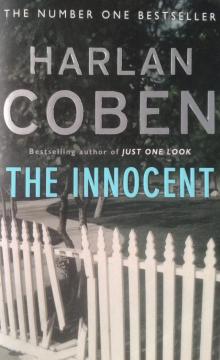 The Innocent
The Innocent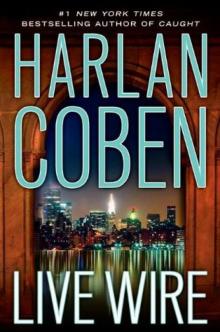 Live Wire
Live Wire Play Dead
Play Dead Drop Shot
Drop Shot Seconds Away
Seconds Away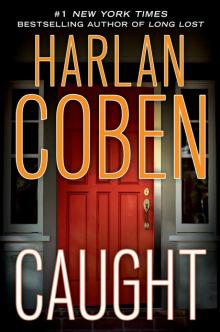 Caught
Caught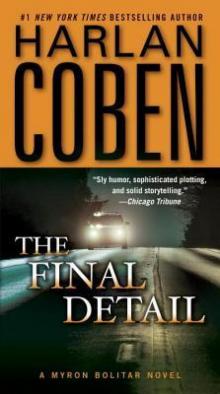 The Final Detail
The Final Detail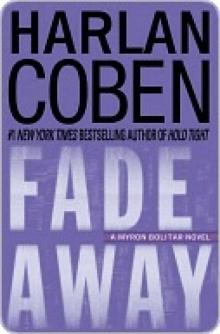 Fade Away
Fade Away Home
Home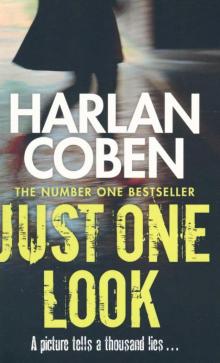 Just One Look
Just One Look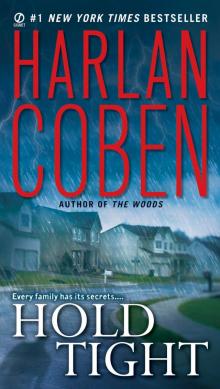 Hold Tight
Hold Tight Fool Me Once
Fool Me Once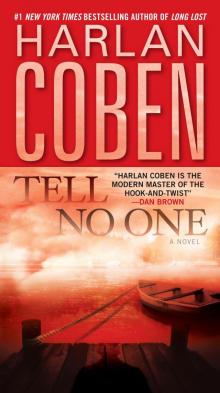 Tell No One
Tell No One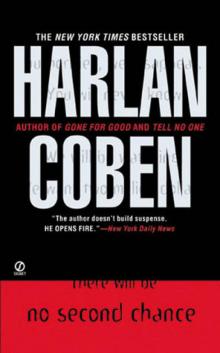 No Second Chance
No Second Chance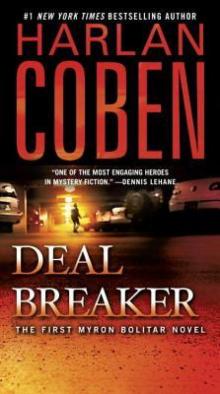 Deal Breaker
Deal Breaker Long Lost
Long Lost One False Move
One False Move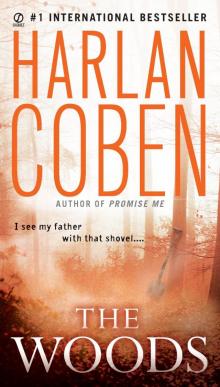 The Woods
The Woods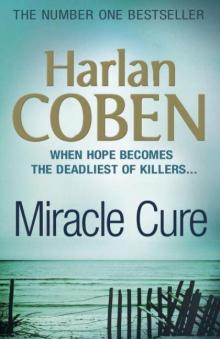 Miracle Cure
Miracle Cure Found
Found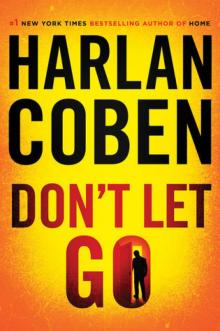 Don't Let Go
Don't Let Go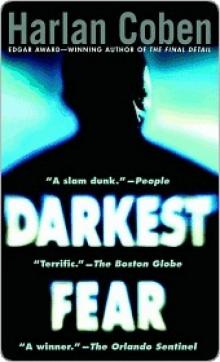 Darkest Fear
Darkest Fear The Stranger
The Stranger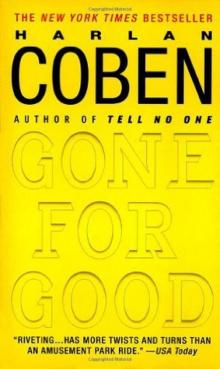 Gone for Good
Gone for Good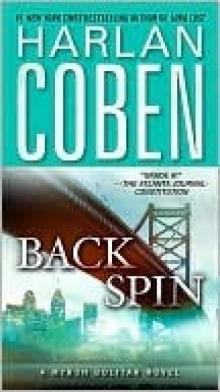 Back Spin
Back Spin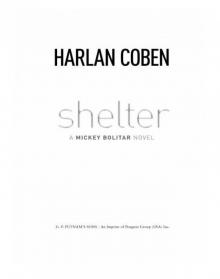 Shelter
Shelter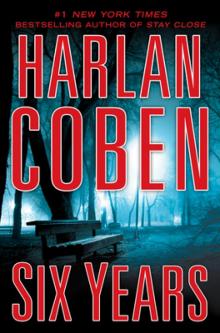 Six Years
Six Years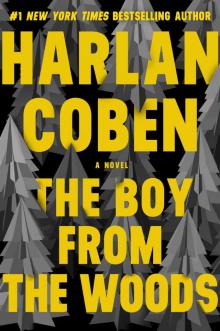 The Boy from the Woods
The Boy from the Woods Missing You
Missing You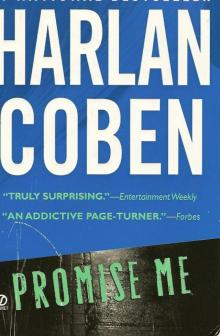 Promise Me mb-8
Promise Me mb-8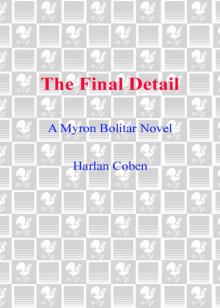 The Final Detail: A Myron Bolitar Novel
The Final Detail: A Myron Bolitar Novel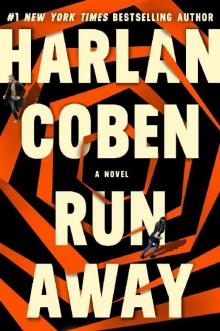 Run Away
Run Away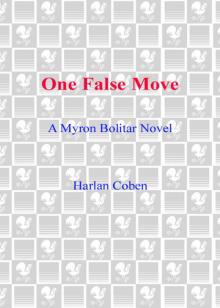 One False Move: A Myron Bolitar Novel
One False Move: A Myron Bolitar Novel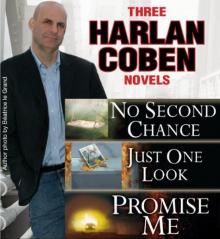 Three Harlan Coben Novels
Three Harlan Coben Novels the Woods (2007)
the Woods (2007) Tell No One (2001)
Tell No One (2001) the Innocent (2005)
the Innocent (2005)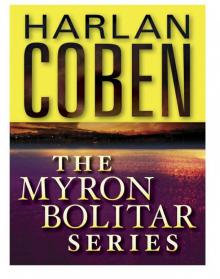 The Myron Bolitar Series 7-Book Bundle
The Myron Bolitar Series 7-Book Bundle Gone for Good (2002)
Gone for Good (2002) Caught (2010)
Caught (2010) Hold Tight (2008)
Hold Tight (2008)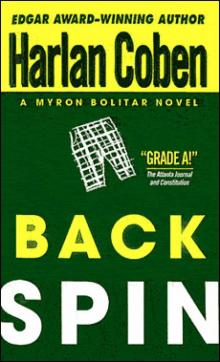 04 - Back Spin
04 - Back Spin Miracle Cure (1991)
Miracle Cure (1991) Harlan Coben 3 Novel Collection
Harlan Coben 3 Novel Collection Just One Look (2004)
Just One Look (2004)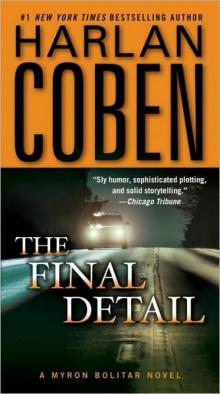 The Final Detail mb-6
The Final Detail mb-6 Play Dead (2010)
Play Dead (2010)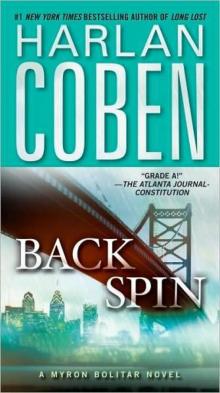 Back Spin mb-4
Back Spin mb-4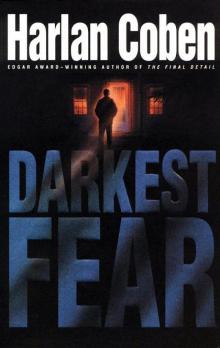 Darkest Fear mb-7
Darkest Fear mb-7